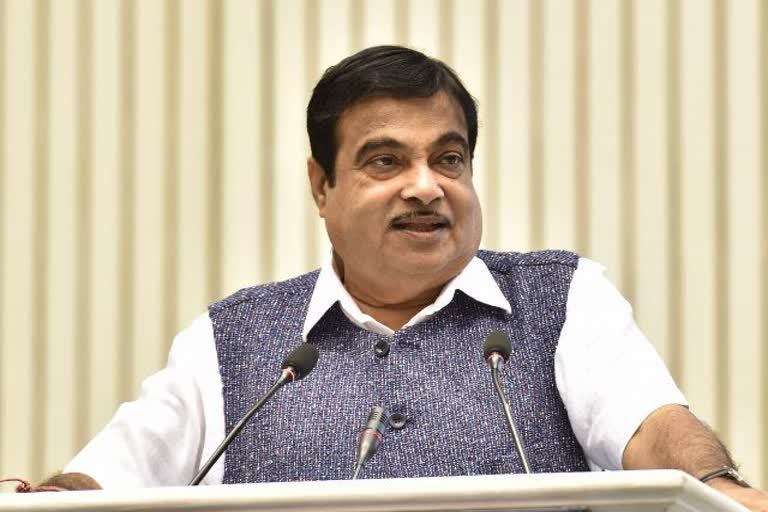New Delhi: Union Minister Nitin Gadkari on Monday expressed confidence that India will get a COVID-19 vaccine "as early as possible" and overcome the pandemic to win the economic war.
The Minister for Micro, Small and Medium Enterprises and Road Transport & Highways said that currently "majority of countries are not interested to deal with China"; they are rather interested in India.
He said such a situation is advantageous for the country's manufacturing sector to ramp up its capabilities to boost exports from India.
"I am confident that we will get a vaccine as early as possible and 100 per cent we will win this war against COVID-19 and also win economic war," Gadkari said this at a virtual event organised by Dun & Bradstreet.
He said disbursement of loans to the tune of Rs 1.48 lakh crore has been completed so far out of the Rs 3 lakh crore worth of collateral-free automatic loans for businesses announced by the Centre earlier.
"We have already reduced our imports from China and already our (India's) exports are increasing. The trends are positive and I am expecting good results in this field," said the minister.
He said the MSMEs are doing an excellent job despite facing an economic crisis.
Eligible borrowers for the scheme include MSME units, business enterprises, individual loans for business purposes and MUDRA borrowers.
Talking about schemes for the MSME sector, he said, "We have sanctioned some 93 schemes and more than 100 schemes are in the pipeline. We want to clear them as early as possible."
Read more:Banks in India to see capital decline over 2 years without fresh infusion: Moody's
He said efforts are underway for reducing India's dependence on import of items such as crude oil.
The minister said emerging areas where MSMEs can work include artificial intelligence, robotics, sustainability, green manufacturing, waste to wealth, development of smart villages, e-mobility, and virtual reality based solutions.
Gadkari said the MSME ministry is working on setting up a number of centers of excellence in collaboration with educational and research institutions like IITs and NIITs.
Pointing out that the current annual turnover of the khadi and village industries stands at Rs 80,000 crore, he said the plan is to increase this to Rs 5 lakh crore in two years.
At a separate event, the minister said the whole world, including India, is facing the crisis of COVID-19 and the situation is challenging.
"We need to create positivity and self confidence in the mind of the people. Negativity and suspicion will create more complication," Gadkari said this at the Virtual Horasis Asia Meeting 2020.
He also said that on the basis of the latest statistics, "we can say that we are coming to the normal situation".
At the same time in the manufacturing sector also, particulary trade and business, a lot of opportunities are up, he said.
Gadkari said that as compared to China, India has got the huge potential, as the young talented manpower is available in India.
He added that there is availability of raw material in India and policy is favourable. "I feel that it is appropriate opportunity for the investor to invest in India," he said.
"Presently, we are facing some crisis due to COVID-19. But, 100 per cent, we are now on a proper track. The manufacturing sector is progressing. In the highway construction, we are on the same foot," the minister said.
Horasis Chairman Frank Jurgen Richter said, "Asia as a region is making impressive progress in containing COVID-19, and at the same time is using the pandemic as a means for transformation — to make their respective economies more resilient and sustainable."
(PTI Report)
